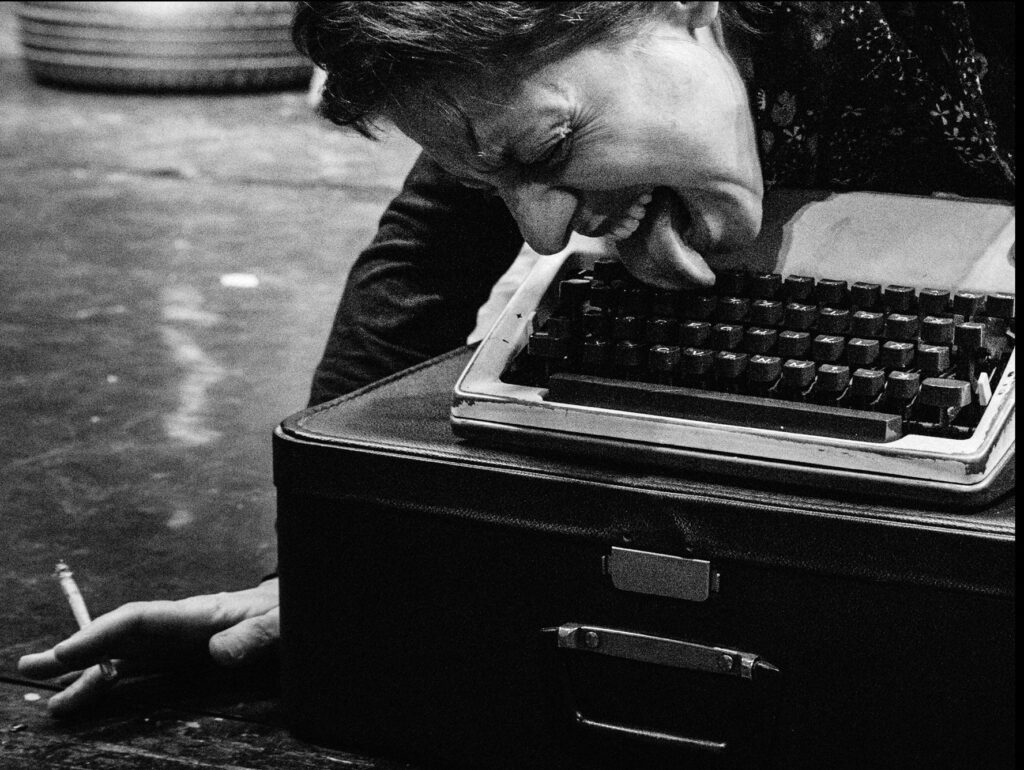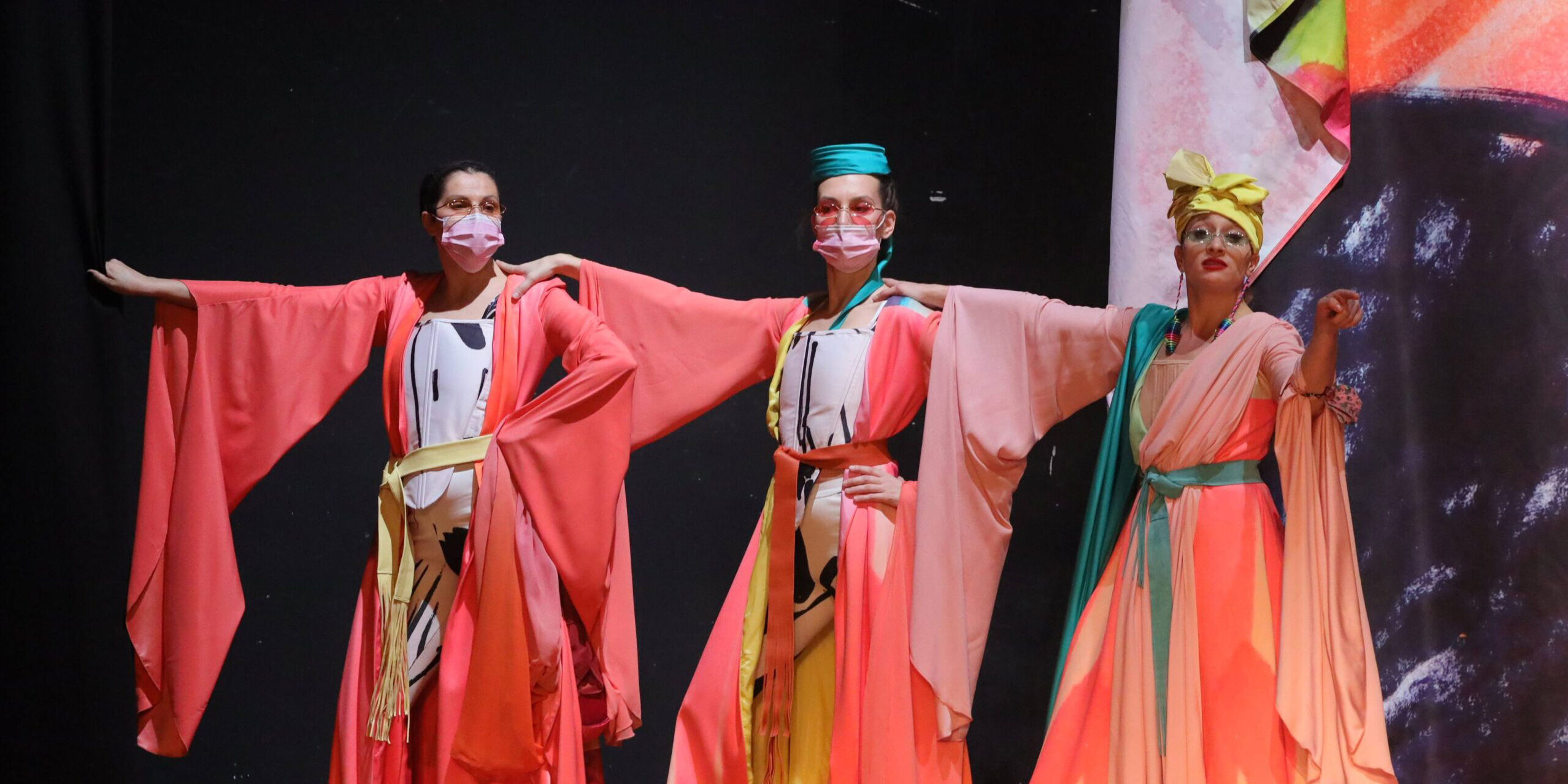Covid-19 has created huge challenges for Serbian theatre, but the biggest problems are the already existing ones, amplified by the pandemic.
In Praise of Naive Times
Among many bizarre things that came with the late-stage pandemic, the case of nostalgia for early-pandemic life could be the most curious one. Although faced with acute existential problems during the first wave of Covid-19, many people believed that the pandemic would end in a couple of months and seemed united in solidarity when facing an uncertain future. But as months passed the phrase “we’re all in this together” became replaced with pandemic fatigue and utopian impulses for change gradually turned to acceptance of our anti-utopian reality.
The theatre scene in Serbia wasn’t an exception. During spring 2020 Serbian artists didn’t have much choice – state authorities established one of the strictest lockdowns in the world that left no room for artistic expression beyond digital spaces and amateur balcony performances. But problems seemed temporary, everyone was expecting infection rates to fall and stay low at least until autumn, preparations were made for a theatre rebound in June, acts of solidarity were made – like the Drama collective of the Serbian National Theatre in Novi Sad that shared their March wages with unemployed colleagues – and even the government wasn’t shy of financial help, giving three monthly minimum wages to independent artists, although those not registered at associations or institutions were excluded.
Working in the “New Normal”
But then the summer came and with it a huge second wave of infections that postponed theatre reopenings until September. A more complicated situation emerged – a pandemic marathon instead of a sprint, and artists realized that they had to take care of themselves, balancing needs for work and safety, and trying to achieve continuity of work in an ever-changing environment.
Mina Milošević, a young dramaturg and playwright, worked for her dramaturgical practice at the National Theatre in Belgrade on Orlando, a piece based on Virginia Woolf’s novel, adapted by playwrights Tanja Šljivar and Goran Ferčec. She describes the beginning of her work as “dramatic”. “The first meeting of our team was the day after the big July protests that erupted in response to the re-announcement of lockdown”. She notes that restrictions dictated occasional postponement of rehearsals, but health problems of workers on the performance had an even bigger impact – “some of them got Covid, some had risky contacts, so they had to wait for the test results, all of us who worked on the performance got tested several times.”
Bojan Đorđev who directed Orlando says that the time-frames of his theatre projects were severely disrupted. “The work on two performances in Belgrade lasted for a total of one year with breaks and interruptions. The performance Sex-Art-Communism at BITEF Theatre had its premiere exactly one year after the first rehearsal.” But on the bright side, he notes that all his projects were realized, although two exhibitions in Austria had to happen without his presence and one big international project had to take place completely online.
Milena Božić, an actress who currently plays in two performances, says that “it’s good that we managed during the autumn wave last year to sustain the process and have a premiere of 8 Women (directed by Tara Manić, National Theatre “Toša Jovanović” in Zrenjanin), but it’s a pity that after the premiere we hadn’t played the performance until May.”
The pandemic was especially hard on theatres that rely on intercultural collaborations, such as Újvidéki Színház or Theatre of Novi Sad, a Hungarian theatre that works on a lot of projects with institutions from neighboring Hungary. After a six-month shutdown and nine months without premieres, they started working with the National Theatre in Szeged, Hungary, on the performance Peasant’s Opera and complications quickly emerged.
Jovana Ibrajter, a PR for Újvidéki Színház, looks back – “first, the premiere was postponed for more than half a year, and then colleagues from Szeged could not travel to Novi Sad due to the closure of borders; the remaining option was for actors from our theatre to take over all the responsibilities – a new cast was made, only with actors of Theatre of Novi Sad, who within a few days mastered the demanding roles filled with singing sections and successfully performed the play in front of the audience.”

A Time To Play, A Time to Die
But even with all the complications, the simple fact that theatres were allowed to work from September 2020 onwards – with short interruptions, half-full capacities and mandatory masks – was a huge decision for artists, albeit it came with controversies. The decision to keep theatres open came with the government’s determination to keep the whole economy open, even during the terrifying heights of the pandemic like in December 2020 when the overall monthly mortality rate was twice the historical line for December. After a show of repressive force during the lockdown of spring 2020, the government swung to a decision not to lose any more economic growth, even if it meant losing tens of thousands of lives. Serbia has one of the highest excess death rates in the world – in a country of fewer than 7 million people, more than 30 thousand excess deaths since the beginning of the pandemic – and Serbian citizens once again faced a well-known problem: their government was putting profit ahead of people’s lives.
But some argue that open theatres are not to blame for the catastrophic situation. Mina Stanikić, a doctor of medicine with a Master in Epidemiology whose life path also lead her to become a theatre critic, notes that several peer-reviewed studies of Covid-19 transmission in enclosed theatre spaces show that “the risk is relatively low, and can be further significantly reduced by capacity limitation, ie. by providing distance between spectators and wearing masks.” She also says that she thinks that it wasn’t irresponsible to allow theatres to work, provided protective measures were implemented, “but it was almost certainly irresponsible to allow various other gatherings and events that carry a higher risk of infection” such as nightclubs and sports matches.
And some theatre artists, like the director Bojan Đorđev, say that rehearsals during the pandemic peaks proved to be “truly therapeutic”. “They were both work and socialization and a kind of quality time spent outside of the general madness of the pandemic,” Đorđev remarks. “Paradoxically, because everything was slowed down and postponed by the pandemic, it happened that we had the luxury of time and space that is otherwise uncharacteristic of work in theatre where everything is produced in 6-8 weeks with constant “hiccups” with schedule due to hall occupancy, actors playing their obligatory repertoire, etc.”
The Haves and Have Nots
But the pandemic has widened the already visible divide between the two main sectors of Serbian theatre – publicly funded institutional theatres and the small theatres that make up the independent scene. Sanja Krsmanović Tasić, an independent director, choreographer and actress who’s also the President of the International Drama/Theatre and Education Association and runs her theatre Hleb Theatar, notes that “the artist from an institutional theatre, even when it’s not a pandemic, receives a regular monthly income and has a protection of their home theatre. Independent artists do not have that luxury. Even when we earn a fee, we must always be aware that maybe next month or even more we may not have fees or income. In that case, we must always have a “black fund” or money for “dark days” in order to survive. At the very beginning of the pandemic, this fund was welcome, but it was quickly spent without the possibility of renewal.”
Jovana Ibrajter says that Újvidéki Színház as an institutional theatre didn’t receive the financial help, but that the good thing is that there was no reduction in terms of the budget or the number of employees.
Institutional theatres in a way don’t need the financial support for their ensemble members and other full-time employees since they receive monthly salaries no matter the circumstances. But freelancers and independent artists were left in a precarious situation. From 2014 to 2020 the government implemented austerity measures that banned the employment of new workers in the public sector, including institutional theatres that were forced to hire young and independent artists as freelancers, also paying higher taxes because of that. And when austerity measures came to an end, the pandemic hit. Jovana Ibrajter notes that, since Újvidéki Színház didn’t receive financial help, so did not independent artists who collaborate with them. And although other artists agree that three minimum monthly wages they received as a rescue package were of great help to them during the first wave of the pandemic, many were excluded from that help because they did not meet the narrow legal criteria for being an independent artist.
Some theatre practitioners had to take refuge in other professions even though they received financial help, like the playwright and dramaturg Tijana Grumić who started working as a narrative designer for video games. When the pandemic receded, she started working again on theatre projects, but, as she remarks, “it was very important to me that, for the first time in my life, I had a monthly income in the form of a salary, which finally meant that I didn’t depend on my work in theatre.”
Others, like the actress Milena Božić, worked in other professions like the television even before the pandemic, which is a common practice in Serbia since performing artists can rarely afford to work in only one medium. She says that the pandemic has made it difficult for young artists to access theatres, but that the problem was already there. She states the lack of auditions and open job positions. “It’s a big question how to get to theatres in general, especially in Belgrade; I’m talking about institutional, not independent ones. As long as I don’t have an answer to that question, I’ll give my support to alternative scenes.”
Some independent theatres, like Reflektor Theatre from Belgrade that has a focus on socially engaged shows, had to take a new approach to production thanks to the economic crisis. In August 2021 they started a campaign “You’re More than Audience” which asked their followers to donate money for the production of three performances that premiere in this season, and in turn earn a production credit for the shows. Marko Panajotović, an actor and director of Reflektor Theatre, says that this production model makes sense since they wanted “to be literally supported by people who come to our theatre and with whom we conduct research, education, communication around topics and the way certain topics are processed.” He also remarks that they have never been supported by state institutions and since their shows are socially engaged, this way they’ll have an even bigger responsibility to deal with topics that are important to citizens.
New Chapter, Old Problems
Branislava Ilić, a playwright and dramaturg who works as a freelancer, notes that “the existence of many is endangered, including mine, but I don’t think the pandemic is to blame, the disorganized state and its institutions are. I have maintained the continuity of work to some extent, but I haven’t maintained the continuity of income. Even before the pandemic, there was a problem with late payments. There is also the fact that is often not understood that a dramaturg starts their work earlier and that we, before the first rehearsal, have been in the job for a few months that is not visible to others, and therefore not valued, let alone paid.”
Artists interviewed for this article generally agree that the problems of the near future are the pre-pandemic problems that got intensified by the pandemic – among many, the precarious position of the majority on the cultural scene. “The obstacle is that it seems to me that theatres don’t see this period as a potential for radical change and re-examination of the system within which they function and the way they function” – Tijana Grumić says – “but as something that needs to pass to get everything back to normal, but I think that there’s no going back to anything that was before.”
Borisav Matić is a critic and dramaturg from Serbia. He is the Regional Managing Editor at The Theatre Times. He regularly writes about theatre for a range of publications and media.
He’s a member of the feminist collective Rebel Readers with whom he co-edits Bookvica, their platform for literary criticism, and produces literary shows and podcasts. He occasionally works as a dramaturg or a scriptwriter for theatre, TV, radio and other media. He's the administrator of IDEA - the International Drama/Theatre and Education Association.








